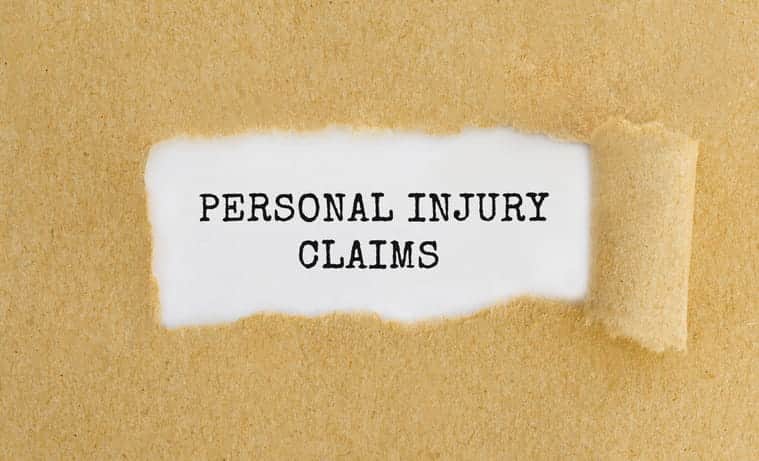Many of our clients are concerned about personal injury settlement taxes in Nevada. Fortunately, for the most part, compensation for a personal injury case isn’t considered taxable income.
Although most of your settlement probably won’t be taxable, there are a few critical exceptions to this rule. If you’re unaware of them, you may face significant financial consequences.
This article takes a look at the IRS rules about injury settlements, clarifying which portions of your settlement may be taxable. It also explains how the right legal representation can help protect your settlement.
Injury lawsuit tax guidelines can be complex, but the team at Adam S. Kutner, Injury Attorneys, is here to help you navigate this chapter of your journey.
GET YOUR FREE PERSONAL INJURY ACCIDENT CONSULTATION
NO FEES UNLESS WE WIN!
The General IRS Rule: Why Most Injury Settlements Are Tax-Free
Internal Revenue Code, Section 104(a)(2) explicitly states that damages received due to “personal physical injuries or physical sickness” — except for punitive damages — are not considered taxable income.
Given that much of the money most people receive is taxable in some way, you might be surprised to hear that there generally isn’t federal tax on injury settlements. This goes back to the foundational principle behind injury compensation: compensation is intended to make you “whole.” It’s not meant to be a source of income or profit.
When it comes to understanding IRS settlement rules, Nevada citizens should know that settlements for physical injuries generally aren’t taxable, but settlements for emotional distress may be.

What Parts of My Nevada Settlement Are NOT Taxable?
In most cases, your personal injury compensation will largely consist of non-taxable legal damages. Here’s a look at the types of damages in a personal injury accident that generally aren’t subject to taxes.
Compensation for Medical Bills (Tax-Free)
You can usually receive your compensatory damages tax-free, and for many injured people, a significant portion of that compensation is for medical expenses, including things like:
- Hospital stays
- Follow-up visits
- Medications
- Medical aids or devices
- In-home medical care
- Surgeries
- Physical therapy
If you are awarded compensation for future medical care, that compensation typically is not taxable either.
While you don’t usually have to worry about medical expenses taxation in Nevada, there is one notable exception to the general rule. Nevada citizens who deducted medical bills on their taxes and were later reimbursed for those expenses with a settlement may need to report the reimbursement as income.
Lost Wages From Your Physical Injury (Tax-Free)
If you’ve just received a lost wages settlement, taxes may be a concern. However, in most cases, the money you received for wages lost due to injury isn’t subject to tax.
The same can’t be said for back pay or severance pay in a discrimination lawsuit (or other lawsuits where there was no physical injury).
The IRS generally views compensation for any kind of physical injury or illness — including compensation for income lost due to that injury/illness — as non-taxable.
Pain, Suffering, and Emotional Distress (Usually Tax-Free)
Just as with compensation for lost income, compensation for pain and suffering or emotional distress is usually tax-free, as long as it’s tied directly to a physical injury or illness.
For instance, if you get hurt in a car accident and receive a pain and suffering settlement along with compensation for medical care and lost income, you likely won’t owe taxes. However, if you are unhurt and receive only an emotional distress settlement, taxes will apply.
Property Damage (Tax-Free)
If you receive a property damage settlement, taxes generally won’t be assessed. This is because any money you receive to repair or replace damaged property (like your vehicle) is reimbursement for a loss.
For example, if you get into a fender bender and file an insurance claim to repair your car, you don’t have to pay taxes on the payout. Property damage settlements in personal injury cases work the same way.
Call (702) 382-0000 For a Free Consultation
Taxable Damages: The Exceptions You Must Know
Understanding the taxability of insurance settlements can be more complex than many people realize. Many damages aren’t taxable, but some are. These are some of the potential tax liabilities of a personal injury settlement:
Are Punitive Damages Taxable?
Punitive damages are almost always taxable. Nevada courts will sometimes order a defendant to pay additional damages to punish them for egregiously bad conduct.
Punitive damages are some of the best-known taxable damages Nevada citizens can receive. However, courts order defendants to pay punitive damages as a punishment, not to compensate the plaintiff.
Because these damages aren’t compensatory, the IRS makes punitive damages taxable in Nevada and elsewhere. If you are awarded punitive damages as part of your settlement, they’ll be taxed as income.
It’s also worth noting that while there generally aren’t Nevada personal injury damage caps for compensatory damages, punitive damages are capped.
If your compensatory damages are less than $100,000, punitive damages are capped at $300,000. If your compensatory damages are $100,000 or more, punitive damages are capped at three times that amount.
Interest Paid on the Settlement Is Taxable
If you receive a large lump sum settlement, or you choose to receive a structured settlement over time, it may accrue interest, and the law makes settlement interest taxable.
Any interest your settlement money accumulates is considered to be investment income, and you must report it on your tax return.
Settlements for Purely Emotional Distress Are Taxable
Emotional distress settlement taxes apply if your case did not involve a physical injury. For example, if you win a defamation or harassment case, the court will usually award you compensation for the emotional pain you’ve been through. That entire award would be considered taxable income.
Nevada Has No State Income Tax: What Does This Mean for You?
You now know that in some cases, you may owe federal tax on injury settlements. But are there taxable damages in Nevada?
Fortunately, no. There is no Nevada state income tax, so you don’t have to worry about paying state taxes on any part of your settlement. Just remember that this doesn’t change your federal tax obligations to the IRS.
Why Your Settlement Agreement Language Matters
Keep in mind that the language used in your settlement can have a major impact on the legal compensation taxes you may have to pay. Our attorneys are deeply familiar with injury lawsuit tax guidelines. We can structure your compensation in a way that keeps your settlement tax implications to a minimum.
For instance, when you work with us, we’ll ensure that your settlement clearly allocates your funds to different categories. For instance, if you received a $500,000 settlement, we might allocate $200,000 for medical bills, $200,000 for lost wages, and $100,000 for punitive damages.
This kind of settlement structure tax planning is important. If your settlement agreement doesn’t clearly allocate your damages, the IRS will allocate them itself, and that may mean you pay more in taxes.
In the example above, imagine that your attorney did not allocate the funds in your $500,000 settlement. If the IRS determines that $200,000 should be categorized as punitive damages, you would owe taxes on $200,000 of your compensation instead of $100,000.
Protect Your Settlement — Speak With an Experienced Nevada Lawyer
IRS settlement rules in Nevada can be difficult to navigate. If you aren’t an attorney, it’s easy to make mistakes. Those mistakes can prove to be costly.That’s where we come in. The team at Adam S. Kutner, Injury Attorneys, has extensive experience protecting our clients’ rights to compensation. If you need help reporting your settlement to the IRS, or are just looking for a guide through this challenging process, our Nevada personal injury lawyers are here for you.
Call (702) 382-0000 For a Free Consultation
FAQ
Call (702) 382-0000 For a Free Consultation
Areas We Service in Las Vegas, Nevada
Henderson | Anthem | Summerlin | Paradise | Summerlin North | Summerlin South | Sunrise Manor | Nellis AFB | Desert Shores | Downtown South | Charleston | Richfield | Crestwood | Angel Park Ranch | Queensridge | Casa Grande Pines | Winchester |
Adam S. Kutner reviews and testimonials
“I needed an attorney because I couldn’t deal with the accident on my own, so I needed someone else’s opinion about my accident.
Well I heard about Adam Kutner through an associate of mine and I chose to seek him because I heard of him before also, so I thought he would be the best option for me.
I was very happy with my settlement and it came quicker than I thought, in just a couple months I received a check in the mail.
When I recommend Adam Kutner I would tell them that the settlement comes very quickly, and he is very helpful with transportation and whatever else you may need.”
– Deborah Banks. 5/5 Stars
START YOUR FREE CONSULTATION
NO FEES UNLESS WE WIN!
SE HABLA ESPAÑOL
Call Now! Free Consultation!

Adam S. Kutner
PERSONAL INJURY LAWYER
With more than 34 years of experience fighting for victims of personal injury in the Las Vegas Valley, attorney Adam S. Kutner knows his way around the Nevada court system and how to get clients their settlement promptly and trouble-free.













